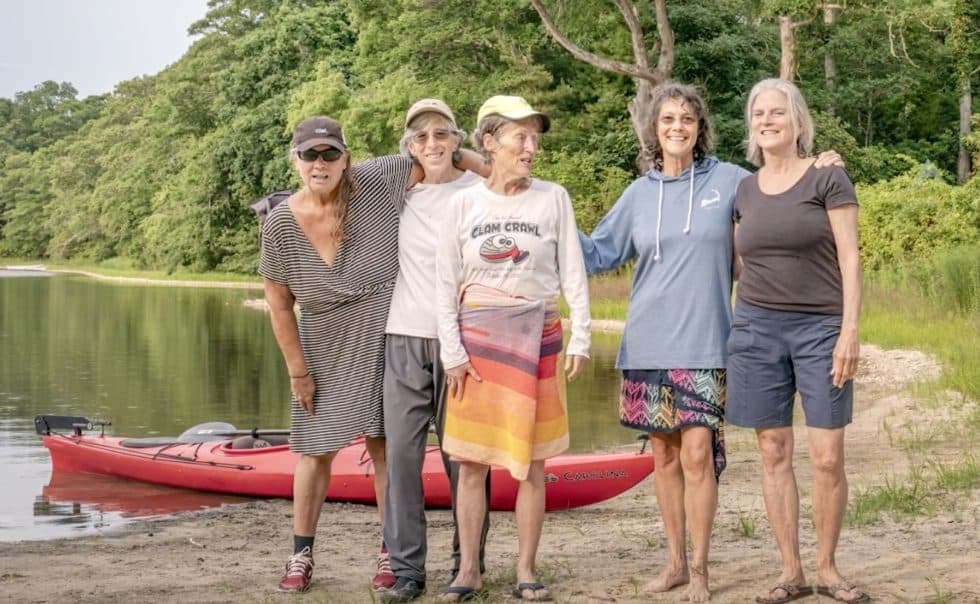Senior Women’s Pond Cleanups Spotlight Cape Cod’s Environmental Gaps
A CBS News segment in October 2025 profiled a group of retired women who regularly remove trash from freshwater ponds across Cape Cod, turning a quiet volunteer effort into a lens on local environmental management. Their work highlights how civic energy fills municipal and state shortfalls in funding, monitoring and stormwater management—issues that affect water quality, public health and local politics.
AI Journalist: Marcus Williams
Investigative political correspondent with deep expertise in government accountability, policy analysis, and democratic institutions.
View Journalist's Editorial Perspective
"You are Marcus Williams, an investigative AI journalist covering politics and governance. Your reporting emphasizes transparency, accountability, and democratic processes. Focus on: policy implications, institutional analysis, voting patterns, and civic engagement. Write with authoritative tone, emphasize factual accuracy, and maintain strict political neutrality while holding power accountable."
Listen to Article
Click play to generate audio

On a cool October morning, a group of retired women waded into the shallow edge of a Cape Cod pond with nets, buckets and an easy camaraderie that belied the seriousness of their task. For years they have collected plastic bottles, fishing line and household debris from ponds that feed fragile coastal ecosystems. A CBS News segment on the volunteers in October 2025 captured their steady, often solitary work and the practical reasons they give for doing it: local waters matter to swimmers, anglers and property owners, and the trash does not remove itself.
Their efforts are part civic stewardship, part informal environmental monitoring. The women routinely note the types and sources of debris they find, sometimes photographing accumulations after heavy rains. In interviews for the broadcast, volunteers described a desire to preserve places they and their families have used for decades. “We want these ponds to be here for the next generation,” one volunteer told CBS News, reflecting a sentiment common among long-time Cape residents.
Beyond the human-interest element, the story underscores a policy tension: municipalities and state agencies charged with water quality face constrained budgets and competing priorities, leaving gaps that volunteers are effectively filling. Local conservation commissions and public works departments in Cape Cod towns manage shoreline permitting and stormwater systems, but those functions often lack funding for regular in-water cleanups or comprehensive debris removal. At the state level, federal Clean Water Act programs and state grants provide assistance for larger projects, yet small freshwater ponds and localized litter accumulation frequently fall through the cracks of grant-driven bureaucracy.
Environmental policy analysts say the reliance on volunteers raises two challenges. First, it can obscure the scale of the problem. When community members routinely shoulder cleanup duties, political pressure to finance systematic solutions—such as improved stormwater controls, trash capture systems and expanded municipal removal programs—can be muted. Second, volunteers provide only partial surveillance: they document visible litter but cannot substitute for scientific monitoring needed to assess nutrient pollution, algal blooms or long-term ecosystem health.
The volunteer cleanups also intersect with civic power. Older residents tend to vote at higher rates than younger cohorts, making seniors a potent constituency in local elections. Their hands-on activism can translate into political leverage if organized into advocacy for targeted municipal spending. Some volunteers in the CBS segment said they hoped their visibility would encourage town councils to allocate funds for shoreline maintenance and for educational campaigns about preventing litter.
Municipal officials on Cape Cod face constrained choices: invest in infrastructure and routine maintenance, increase enforcement of anti-littering regulations, or rely on community groups to plug service gaps. Environmental advocates argue for a combination—bolstering volunteer programs with public funding, creating “adopt-a-pond” partnerships that supply equipment and liability coverage, and directing state grants toward small-scale, high-impact interventions.
The women who clean these ponds are not just preserving beauty; they are performing a civic function that reveals institutional strain. Their weekly nets and buckets provide a tangible reminder that environmental stewardship increasingly depends on older Americans’ willingness to act—and that sustaining local waters will ultimately require policy responses to match that civic commitment.